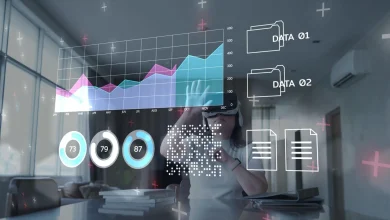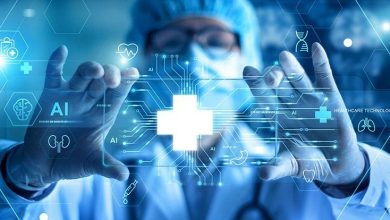Artificial intelligence has the potential to revolutionize virtually every industry. Health care is no exception, and many medical organizations today are looking into the technology as its benefits become more evident. However, AI in health care can also pose significant security risks.
Cybersecurity is already a big concern in the industry, with 66% of health care organizations suffering a ransomware attack in 2021. AI has many advantages for these companies but could also heighten these concerns. Medical businesses must improve their security to implement AI safely and effectively.
Use Cases for AI in Health Care
AI’s potential in health care is too vast to ignore. Deep learning models can analyze scans and X-rays to diagnose patients with 90% accuracy, helping doctors understand and treat various conditions faster and more accurately. Similarly, AI can study patients’ history, genetics and other factors to find conditions they may be predisposed to.
Some companies use AI to simulate how various chemicals or molecules interact, helping discover new medications in minimal time. This can sometimes lead to discoveries taking less than a day when traditional means would’ve taken months.
AI can help with the administrative side of health care, too. Intelligent algorithms can automate data entry and organization tasks, helping consolidate records and make them more accessible while saving time for hospital staff. Doctors and nurses can then find relevant information faster and spend more time helping patients.
Why AI in Health Care Poses Security Risks
AI in health care has many significant advantages, but it also introduces new risks. Most notably, these models require access to vast amounts of data to work properly. Gathering and storing all this information could attract cybercriminals, and moving it through complex systems introduces more chances for breaches. While hospitals want to access data quickly, the best ways to keep that data secure are unfortunately to set up careful precautions and continue to restrict access.
These data privacy concerns are relevant in any industry, but health care records are particularly sensitive. The average medical center data breach costs $429 per record, almost triple the average across industries. That’s because medical data is highly private and sensitive, and companies can face considerable legal repercussions for exposing it.
Cybercriminals could cause more damage than data breaches as health care organizations rely more on AI. Hackers could poison data sets or manipulate them to produce inaccurate results. These attacks could lead to medical errors, even endangering people’s lives.
How Health Care Organizations Can Secure AI
In light of these risks, health care organizations must take AI security seriously. They can do a few important things to make these systems more secure.
Better Data Stewardship
Strengthening health care AI starts with securing the data these algorithms use. The Health Insurance Portability and Accountability Act (HIPAA) outlines two de-identification methods organizations can use to remove identifiers from data. Using one of these before feeding information into AI algorithms will help ensure any errors or breaches don’t expose sensitive patient data.
Health care organizations should also encrypt any databases they use for AI applications. Regularly cleaning and reviewing the data to ensure there’s no poisoned or suspicious information will also help.
Stricter Access Controls
It’s also important to restrict access to AI models and their data as much as possible. The best approach is to follow the principle of least privilege: The only users, devices and apps that should be able to access the data are those that need it. This will minimize the number of paths that lead to this sensitive information.
Next, businesses need to make it harder to break into these privileged accounts. That means using strong, unique passwords that rotate often. Multifactor authentication (MFA) is another important part of protecting these accounts.
Employee Training
Human errors like misdelivery and misconfiguration are the most common causes of data breaches in the health care sector. Given these mistakes’ prevalence, AI security should also involve employee training.
All health care workers with access to AI tools or their data should undergo regular cybersecurity training. This education should cover best practices like spotting phishing attempts and the importance of strong password management. The more privileged access someone has, the more in-depth this education should be.
Monitoring
Network monitoring is also important. Medical businesses should continuously monitor their AI tools and related databases to look for suspicious activity. This will enable faster, more effective responses in the event of a cyberattack.
AI can actually help in this area. Automated security monitoring tools can provide 24/7 support, which would be difficult with human IT workers. These services can also detect and respond to potential breaches faster, containing them before they cause significant damage.
Security Is Essential for AI in Health Care
AI could bring revolutionary improvements to the health care industry. However, its security implications are too significant for companies to rush in without careful consideration. Medical businesses must reassess their security and ensure they have the proper protections before implementing these tools.
Medical AI that isn’t secure could cause millions of dollars in damage and even endanger lives. Health care organizations that follow these steps to ensure security can pave the way for a new era.




